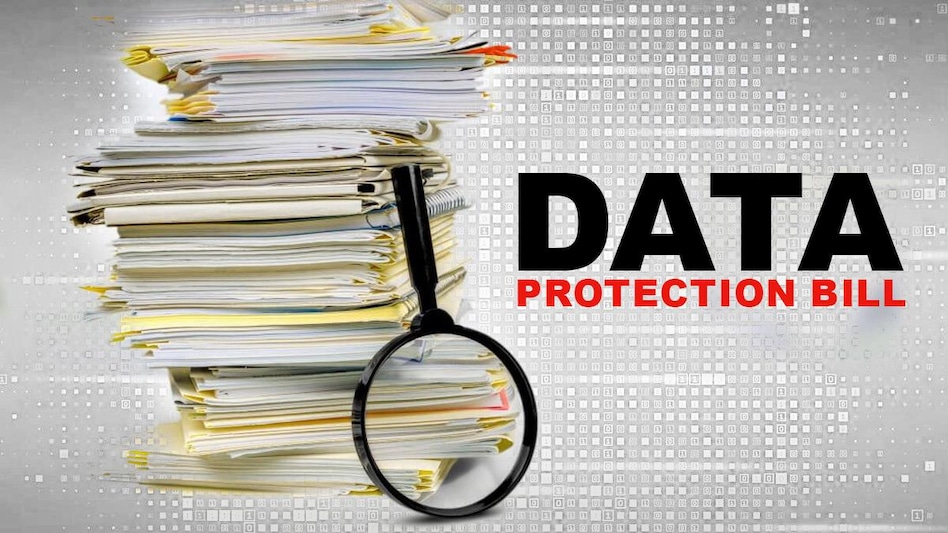


India is on the verge of implementing a groundbreaking law that aims to protect personal information of its citizens in the digital sphere. The Digital Personal Data Protection (DPDP) rules have been released in draft form and are set to go into effect by April 1, after public feedback and consultations. While the law poses challenges for businesses in terms of compliance and technology, it promises greater control and privacy for individual digital users.
India's Digital Personal Data Protection Law: A Landmark Step towards Data Privacy
India is poised to enact a comprehensive data protection law that will revolutionize the country's digital landscape. The Digital Personal Data Protection (DPDP) rules, released in draft form, aim to safeguard citizens' personal information in the digital sphere.
Background
In the wake of growing concerns over data breaches and misuse, India has been working on a data protection law for several years. In 2017, the Supreme Court declared the right to privacy as a fundamental right, paving the way for a comprehensive data protection regime.
The DPDP rules draw inspiration from global best practices, such as the European Union's General Data Protection Regulation (GDPR). They lay down strict guidelines for businesses on how they collect, process, and store personal data.
Key Provisions
The DPDP rules introduce several key provisions to protect personal data:
Challenges and Benefits
The DPDP rules present challenges for businesses in terms of compliance costs and technology requirements. However, they also bring significant benefits:
Top 5 FAQs
1. When will the DPDP rules go into effect? The rules are expected to become effective by April 1, 2023, after public feedback and consultations.
2. What types of businesses will the DPDP rules apply to? The rules will apply to any business that processes personal data of Indian citizens, regardless of its location or size.
3. What are the penalties for violating the DPDP rules? Non-compliance with the rules can result in significant fines and other penalties.
4. How can businesses prepare for the DPDP rules? Businesses should conduct a data audit, develop data protection policies and procedures, and invest in data security measures.
5. What are the lessons learned from other data protection laws, such as the GDPR? The GDPR has highlighted the importance of compliance, enforcement, and data subject empowerment. The DPDP rules have incorporated lessons from the GDPR to ensure effective implementation.
Conclusion
India's Digital Personal Data Protection (DPDP) rules are a landmark step towards ensuring the privacy and protection of citizens' personal information in the digital era. While they present challenges for businesses, they also bring significant benefits, including increased trust, reduced data breaches, and improved data governance. By balancing the rights of individuals with the needs of businesses, the DPDP rules will shape the future of data privacy in India.

Thousands of users worldwide are unable to access critical services such as Azure, Microsoft 365, Teams, Outlook, and the Microsoft Store due to widespread downtime across several of Microsoft's key platforms. The outage has also affected major corporate clients like Starbucks, Kroger, and Costco, highlighting the extent of the problem. While Microsoft has acknowledged the issue and is working on a solution, frustrated users have taken to social media to express their displeasure and even poke fun at the situation.

Elon Musk has once again stirred the tech world with the launch of Grokipedia, his version of Wikipedia, powered by AI. With its first iteration already live, Musk claims that Grokipedia 0.1 is superior to Wikipedia, and version 1.0 will be a whopping 10 times better. As this new platform takes on the task of compiling and updating information with the help of AI, we explore the key differences between Wikipedia and Grokipedia.

Gone are the days of standing in long queues to update your Aadhaar card. With the new rule, you can now make any changes or corrections to your Aadhaar information online, without having to visit an enrolment centre. This means that updating your name, address, date of birth, or mobile number will be faster, simpler, and more secure than ever before. Say goodbye to the hassle and hello to convenience with this game-changing update to the Aadhaar system!

Entrepreneur and inventor Elon Musk has launched a new online encyclopedia called Grokipedia, which he claims will provide a more balanced and unbiased view of controversial subjects compared to Wikipedia. Although some entries on the site appear identical to those on Wikipedia, many users have praised Grokipedia for its nuanced and detail-oriented approach. However, others remain skeptical and have pointed out that some pages on Grokipedia appear to have been lifted directly from Wikipedia without proper credit. Nonetheless, Musk has emphasized that his goal with Grokipedia is to provide "the truth, the whole truth, and nothing but the truth."

During a meeting with Indian Police Service probationers, President Droupadi Murmu emphasized the importance of technology in policing and the potential threat of "digital arrest". Murmu stated that India's economic growth relies on effective policing for maintaining law and order and attracting investment. She also highlighted the role of a future-ready police force, led by young officers, in shaping a technologically-advanced 'Viksit Bharat'. "Digital arrest" refers to a scam where fraudsters pose as law enforcement officials and use threats of arrest and other means to extort money from victims.

South African entrepreneur Elon Musk's social media platform X, formerly known as Twitter, has announced that it will no longer use the Twitter domain for two-factor authentication. This update primarily affects users who utilize hardware security keys or passkeys and they must re-enroll their credentials on X.com before November 10 to avoid being locked out of their accounts. This move reflects Musk's long-standing ambition to revitalize the X.com brand, which he founded in 1999 and later merged with Confinity to create PayPal.

Elon Musk's website X, formerly known as Twitter, has announced that it will no longer support the old Twitter.com domain for users with hardware security keys or passkeys. This means that these users will need to re-enroll their keys or risk being locked out of their account. X has assured users that this change is not due to any security concerns, but rather to migrate away from Twitter's old domain. Users can easily check the status of their 2FA and re-enroll if necessary to stay connected on X.

According to Wikipedia founder Jimmy Wales, claims made by Tesla CEO Elon Musk about the online encyclopedia having a left-wing bias are simply "factually wrong." This comes after Musk urged his followers to stop donating to Wikipedia and announced plans to launch his own version. Wales refutes the idea of a biased Wikipedia, but acknowledges room for improvement in its volunteer community. Musk's criticism of the site intensified after footage of him at a rally sparked controversy.

Twitter has announced that it will retire its old Twitter.com domain and require users who use security keys for two-factor authentication to re-enroll their keys by November 10. This change is not due to any security concerns and will only impact Yubikeys and passkeys, not other forms of 2FA. While some legacy assets associated with the old Twitter app still remain, it's clear that the platform is now under the control of owner Elon Musk, who has been making several controversial decisions, including reinstating banned accounts. This news has caused frustration for some users, and raises questions about the direction of the platform under Musk's leadership.

In a move to improve user experience, X (formerly known as Twitter), owned by Elon Musk, has purged approximately 1.7 million bot accounts from the platform. The bots were inundating reply posts with spam and irrelevant content, causing frustration among real users. This is the latest effort in X's ongoing battle against bot networks and marks Musk's dedication to creating a more secure and authentic experience for users. The organization is also implementing new moderation tools and features to prevent spam in direct messages. Users can now expect clearer responses and more meaningful interactions on the platform.